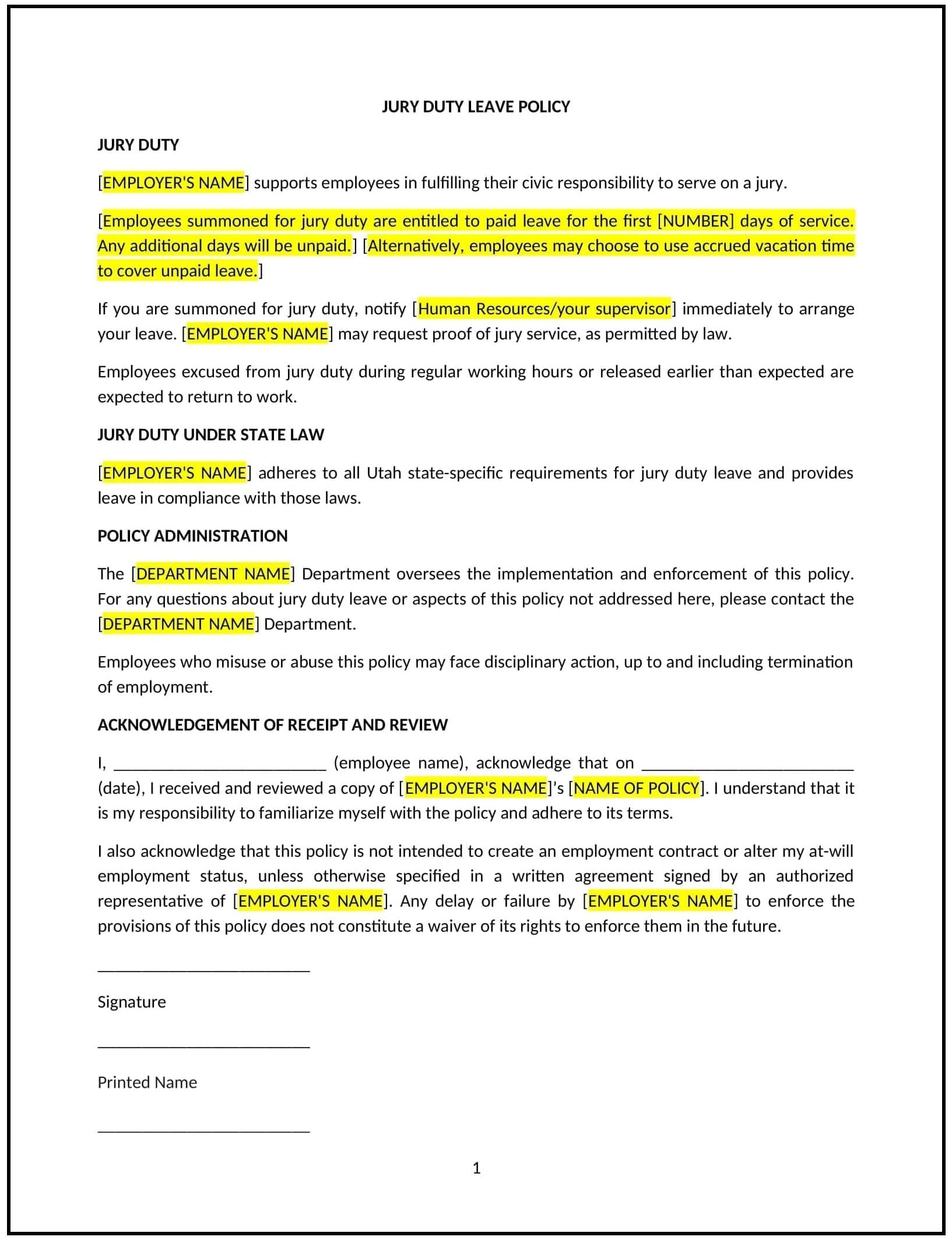Got contracts to review? While you're here for policies, let Cobrief make contract review effortless—start your free review now.

Customize this template for free
Jury duty leave policy (Utah)
This jury duty leave policy is designed to help Utah businesses establish guidelines for employees who are summoned to serve on a jury. It outlines procedures for requesting leave, compensation during jury duty, and job protection upon return.
By adopting this policy, businesses can support employees fulfilling their civic duties, comply with state and federal laws, and align with general best practices for leave management.
How to use this jury duty leave policy (Utah)
- Define eligibility: Specify which employees are eligible for jury duty leave, such as full-time or part-time staff.
- Outline request procedures: Provide steps for employees to notify the business of their jury duty summons and request leave.
- Address compensation: Clarify whether employees will receive paid or unpaid leave during jury duty.
- Ensure job protection: Guarantee that employees will return to the same or an equivalent position after jury duty.
- Train managers: Educate supervisors on handling jury duty leave requests and maintaining workflow during employee absences.
- Monitor compliance: Regularly review jury duty leave requests to ensure adherence to the policy.
- Review and update: Assess the policy annually to ensure it aligns with evolving laws and business needs.
Benefits of using this jury duty leave policy (Utah)
This policy offers several advantages for Utah businesses:
- Supports civic responsibility: Demonstrates a commitment to helping employees fulfill their civic duties.
- Aligns with legal standards: Helps businesses comply with state and federal laws requiring jury duty leave.
- Enhances employee morale: Shows employees that the business values their contributions to the justice system.
- Reduces legal risks: Minimizes the risk of lawsuits or penalties related to non-compliance with jury duty leave laws.
- Builds trust: Fosters a positive workplace culture by supporting employees during jury duty.
Tips for using this jury duty leave policy (Utah)
- Communicate the policy: Share the policy with employees and include it in the employee handbook.
- Provide training: Educate managers on handling jury duty leave requests and maintaining workflow during employee absences.
- Monitor compliance: Regularly review jury duty leave requests to ensure adherence to the policy.
- Address issues promptly: Take corrective action if jury duty leave requests are mishandled or denied improperly.
- Update regularly: Assess the policy annually to ensure it aligns with evolving laws and business needs.